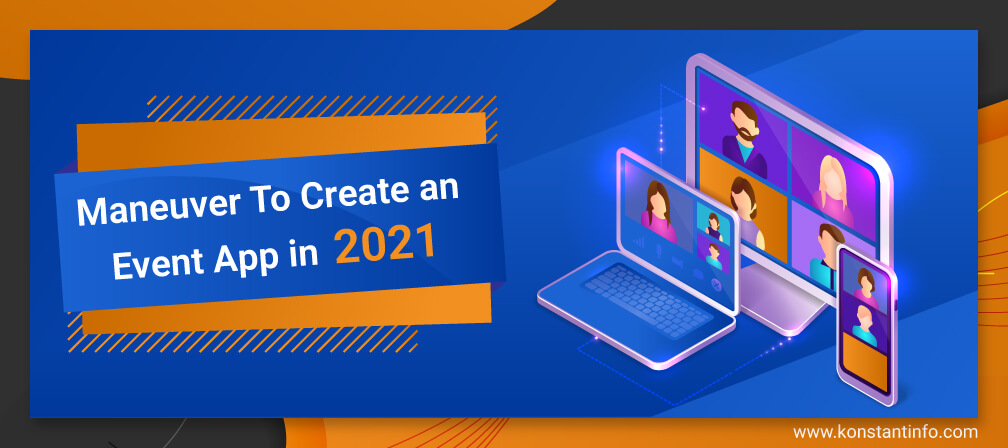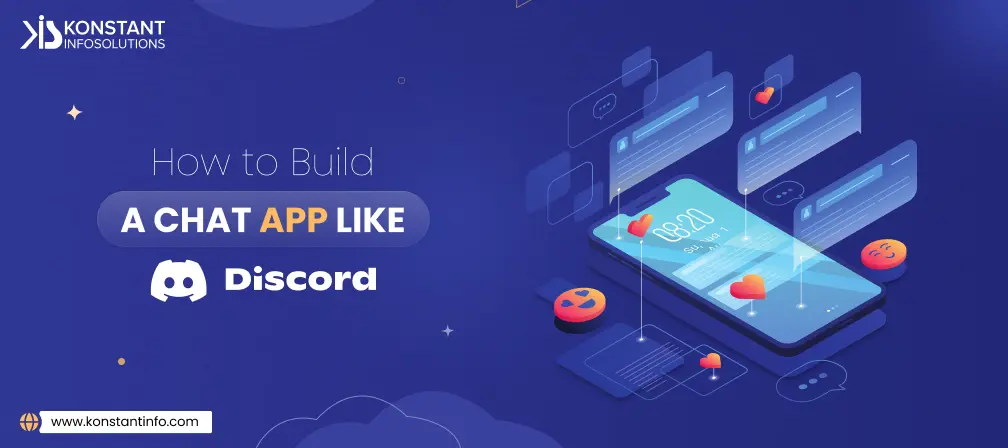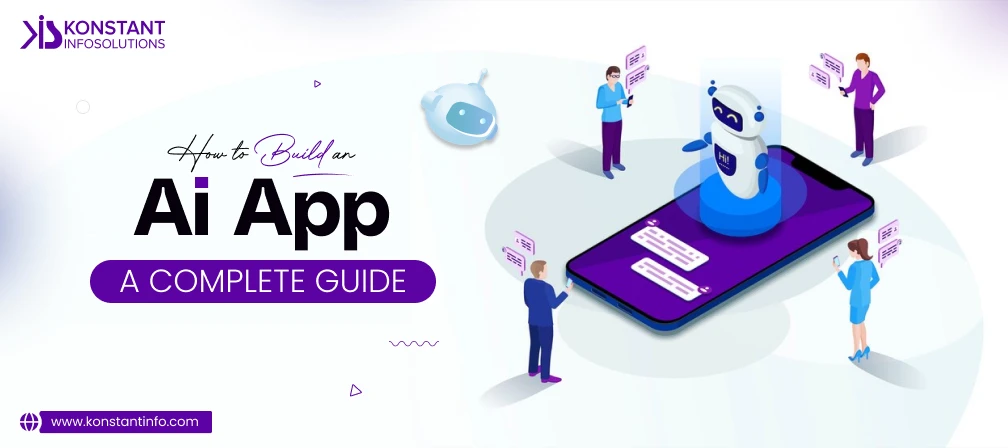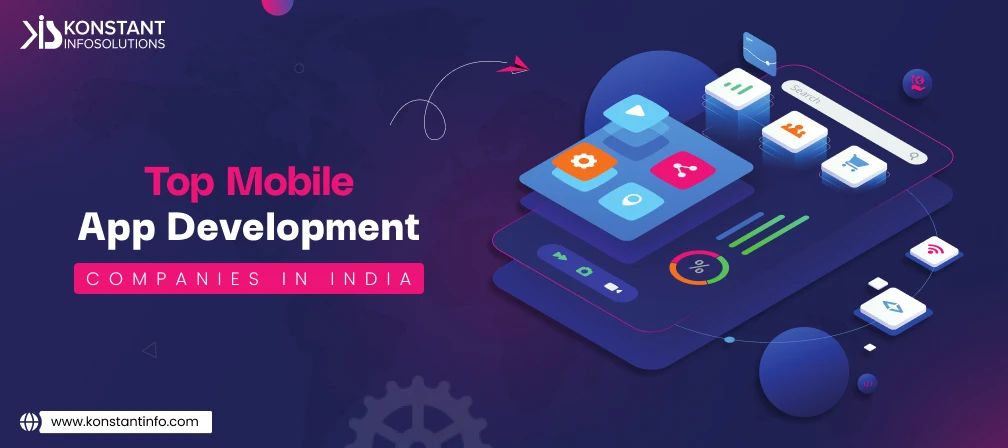An event app can help you organize and plan your event right from selecting the venue, fetching guests, seating and food arrangements, music and lights to the overall appeal. Let’s delve into the basics of creating a basic-best event app in 2021!
An event app has to be a combination of companion tools integrated for end-to-end planning. Such an event planning tool eliminates a piecemeal approach to event planning, work on a client-server scenario by centralizing all information in one place. It mediates collaboration and communication with the key audience – colleagues, attendees and vendors. Plus, users can track and measure success via the event app dashboard.
Points to Remember For Event Platform
- Is your app able to handle events of all sizes?
- Are you able to fix a deal with the third-parties?
- Is your app able to store and save the data on fixed deals?
- Are you able to avoid misunderstandings while making a payment or receiving payment via the event app?
- Are you able to set the Menu online?
- Does your app enable organizers to list and fix the party menu online to confirm and send it to the caterers?
- Does your app allow allocating responsibilities to the team members for party preparations?
- Are you able to create a party directory with the guest data, party details, and compare your preparations with third-party references?
- Does your event app notify about the scheduled event date, budget, pending payments or any other thing relevant to the upcoming occasion?
- Are you able to set reminders for team members on delegated tasks?
- Are these app reminders redirected to third-parties to notify them about their booked orders?
Primary Features in an Event Planning App
- User Accounts – For host, administrator and participants
- Registration/Login – For authentication and authorization
- Group Registration – To register a group of participants.
- Creating an Event – To start a virtual conference.
- Listing an Event – To mark the beginning of an event.
- Advanced Search On-site – To look for the events scheduled on specific dates.
- Event Categories – To create virtual event platforms for conferences, seminars, birthday parties, anniversary celebrations, official get-together, alumni meets within specific categories.
- Sending Invites to attendees
- Promoting Event
- Provide Virtual Event Insights
- Meeting Approval and Budgeting
- Setting Reminder after selecting an event.
- Booking Option to the user with invoice generation
- Designing, activating and promoting booking tickets
- Online RSVP Tracking
- Generating relevant reports – Marking the minutes of the meeting
- Mobile optimized
- Provides flexible discounts, access codes
- Generate Event URL
- Email Confirmation – Confirming the final participants
- Automated Reminder – To notify the participants about the upcoming event.
- Sponsors catalogue (optional)
- Exhibitor catalogue (optional)
- Exhibition inventories (optional)
- Connect attendees
- Allocating services to different users
- Integrating with accounting module
- Simplifying workflow
- Interactive user interface
- Screen Sharing
- Chat
- Virtual Hand Raising
- Polls – It is useful for the host to understand participant’s opinions.
- Mute Participants – To silence any participants.
- Record Meetings – To capture the entire meeting.
- Encryption – To enable only authorized members to attend the event.
How Does an Event App Work?
Event management is a core module that combines with event catering. Users are free to selectively download and install different service modules to extend the scope of this module. Any new services are attached to it automatically. It manages different types of events and allocates services to users.
User Interface/Screens in Event App
- Event Dashboard
- Event Order View
- Event Order Form View
- Event Type
- Event Services
Advantages of Virtual Event Apps
- Manages internal planning and organization
- For customizing attendee communication
- For connecting with Facebook
- Creating floor plans and venue visuals
- To automate entry management.
- To gamify in-person attendee engagement.
- These are scalable, saves time, eases networking and communication.
- Eases collecting feedback
Technology Stack for Virtual Event Apps
Building blocks to put a virtual application to manage events must consist of:
Pre-requisites
- Virtual Conference Platform
- Branded Pre-recordings
- Networking And Community Building
- Event App (The event lobby divides into conference sessions, sponsor booths, networking tools and breakout sessions)
- Content Management System (to leverage your existing virtual management system; to create virtual event lobby)
- CRM/Marketing (to leverage your marketing automation system)
- Ticketing Automation and SEO (Event ticketing platform like Eventbrite)
Requirements for Development
- Backend development
- UI Design
- iOS and Android compatibility
- Cloud network
- Lifecycle aware components to help manage your activity and fragment lifecycle
Android Architecture Components for Event App (illustrative)
- LiveData to build data objects
- ViewModel to store UI related data
- Room (SQLite object mapping library) to avoid boilerplate code and convert SQLite table data to Java objects;
- return RxJava, Flowable and LiveData observables.
.net stack
- C#, F#, VB.NET, Fantom
- Frameworks, platforms, SDKs, IDEs, SOA, and libraries
LAMP Stack
- Linux, Apache, MySQL, PHP
- LAPP (Linux/Apache/PostgreSQL/PHP)
- XAMPP (Linux, Mac OS X, Windows/Apache/MySQL/PHP, Perl)
- WAMP (Windows/Apache/MySQL/PHP)
- MAMP (Mac OS X/Apache/MySQL/PHP)
MEAN Stack
- MongoDB, Express.js, Javascript MVC, Node.js
Cost To Create a Virtual Event App
Event app development cost in current scenario USD 10-35K. Hourly rates vary.
Conclusive: What should a great virtual event app have in 2021?
A virtual event platform has the potential to create a hit buzz, multiply the interactions, network, streamline event proceedings, getting personalized to reach attendee preferences, captivate event uploads, manage event promotion, and more to amuse the exhibitors and sponsors with high ROI. We can help drive unique ideas by penetrating the customization in providing niched and personalized event management services.
We provide a no-code/zero code/WYSIWYG/drag-and-drop interface for the creation of event-specific apps. We facilitate the creation of apps to download from the app store/play store. Contact for further details
About Author
Neeti Kotia is a technology journalist who seeks to analyze the advancements and developments in technology that affect our everyday lives. Her articles primarily focus upon the business, social, cultural, and entertainment side of the technology sector.



